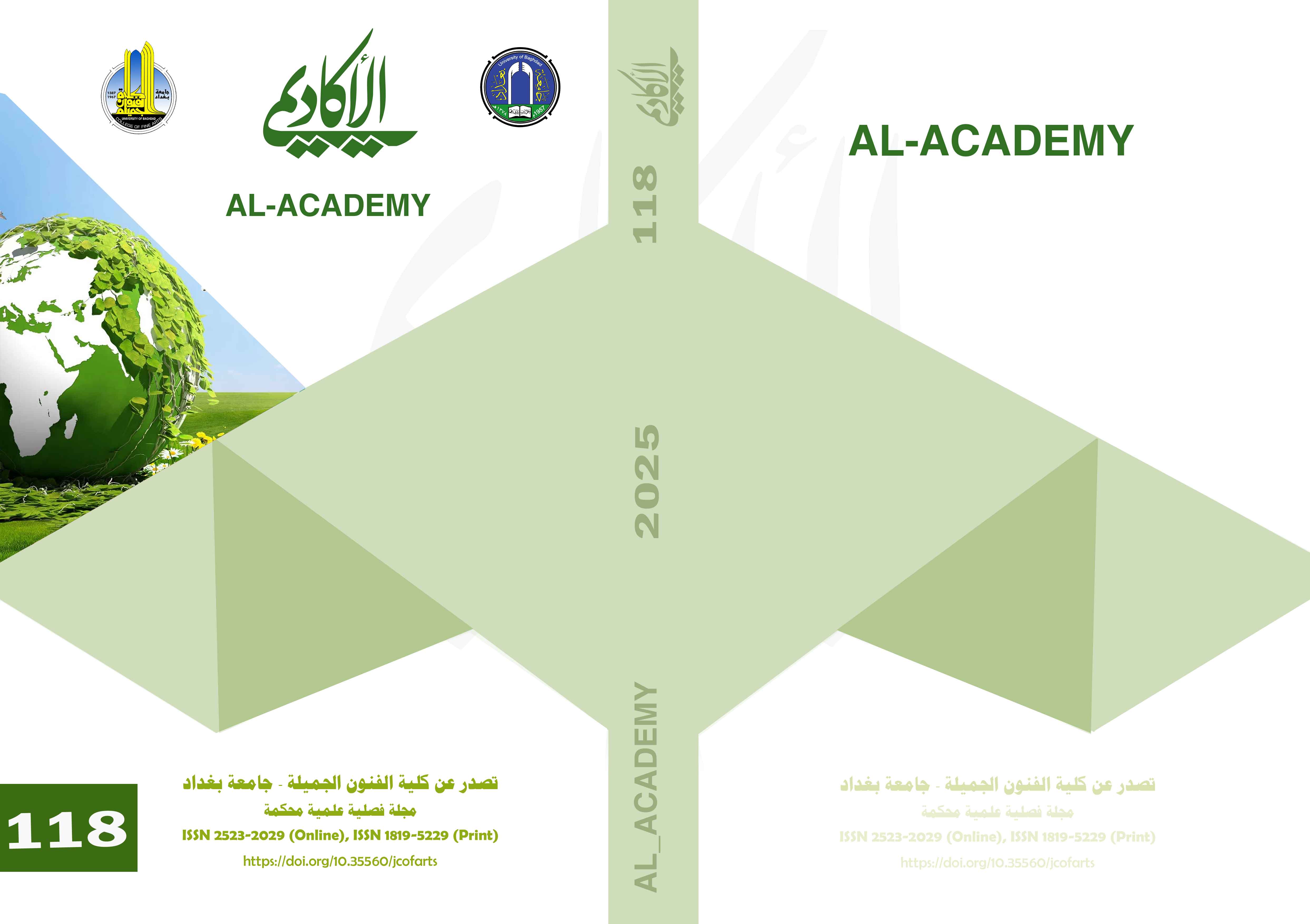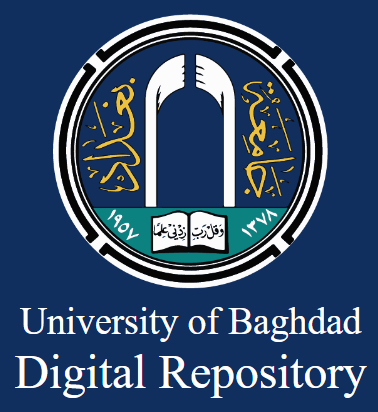Representations of belonging in the children's play "The Tale of Silwan the Artist" by Hussein Ali Harf
DOI:
https://doi.org/10.35560/jcofarts1659Keywords:
Belonging , Children's PlayAbstract
Human history, with all its social, political, and religious transformations, has confirmed that belonging has been a human need that has accompanied man since the dawn of history. Thus, he found himself confronted with the need to belong to a group, a group, or a place. Regardless of age, race, or socioeconomic status, an individual always needs to feel like a member of a group with whom he shares common interests, and from which the group provides support. Belonging is one of the factors that determines the nature of a person's relationship with his social environment and with his society, everywhere and at all times. Thus, belonging is a social human value that represents an integral part of the human being and drives him to achieve accomplishment and a sense of social responsibility. Belonging is thus a necessary need that the individual strives to fulfill and satisfy in order to overcome his loneliness and social isolation, as well as the spatial, temporal, or social alienation he may experience or feel. The concept of belonging in multicultural, multi-religious, and multi-ethnic countries—such as ours—has taken on a problematic character due to the multiplicity of types and forms of belonging, their complex overlap, and their interaction with various factors such as language, religion, heritage, and ideology.
This confusion and this problematic concept, deeply rooted in our society as a result of the historical and political repercussions of recent decades, has placed a heavy burden on Iraqi creatives, who, in accordance with their moral responsibility, must contribute to uncovering this confusion and exercise an educational and enlightening role in favor of the national belonging that intellectuals and educators seek to consolidate and give supremacy over other sub-affiliations, whose existence has also become entrenched under political and geographical circumstances and has become a reality. This has contributed to the confusion and problematic nature of the concept of belonging and the problem of its plurality. Given the importance of the subject of belonging, especially when the “national” aspect of it is given priority over the secondary aspect, many children’s theatre writers in our country, Iraq, have addressed it through their texts according to various plots and stories. Among these writers, the name of Hussein Ali Harf stands out as an author and director in this field, who is considered "one of the most important Arab playwrights who knocked on the doors of children's theater and entered it" (Harf, 2009, p. 87). He wrote "purposeful educational texts that, in their integrated elements, seek to rescue children's culture from its lethargy, build a cultured, aware child, grant him some happiness, joy, and delight, and instill values that may have been forgotten" (Harf, 2009, p. 87). Among the twenty texts written by Hussein Ali Harf, the poetic play "The Tale of Salwan the Artist" stands out as an important and solid literary and artistic model, containing multiple treatments of the idea of belonging and strengthening the national aspect of it in a poetic style and through the hero, the young man (Salwan), with his multiple literary and artistic talents. Based on the above, the researcher decided to choose this text in particular as a deliberate sample to study the topic of representations of belonging in children's theater texts. Based on the above, this research entitled “Representations of Belonging in the Children’s Play (The Tale of Silwan the Artist)” by Hussein Ali Harf.
References
Abu Abed, M. (1997). Determinants of Job Satisfaction for Primary School Teachers in the Hashemite Kingdom of Jordan. Tunisia: PhD Thesis.
Al-Bishri, T. (1999). The Concept of Belonging and Its Converging Circles. Egypt: B.D.
Al-Jabri, M. (1997). Contemporary Thought Issues. Beirut: Center for Arab Future Studies.
Al-Mashat, A. (1995). Education and Political Development. Cairo: Journal of the Future of Arab Education, Volume 1, Issue 2.
Al-Najjar, B. (2008). Classes and Groups: The Conflict of Identity and Citizenship in the Arabian Gulf. Beirut: Al-Mustaqbal Al-Arabi Magazine, Issue 352.
Al-Sayed, M. (2001). Dictionary of Educational and Psychological Sciences Terms. Syria: Academy of the Arabic Language in Damascus.
Al-Sharqawi, A. (2006). Psychological Needs of Youth. Cairo: Instruction Booklet, Anglo-Egyptian Library.
Al-Zahra, Q. (2014). Representations of Values in the Relationship between Professor and Student in the University Environment, a Field Study/University of Mostaganem. B.B: Al-Khalduniya Magazine, Issue 7.
Baha El-Din, H. (2000). Nationalism in a World Without Identity, Challenges of Globalization. Cairo: Egyptian General Book Authority.
Baqir, A. (1984). Administrative Psychology. Baghdad: Technical Institutes Foundation Press.
Elias, M.-Q. (2006). Theatrical Dictionary. Beirut: Lebanon Library.
Hani, A. (1993). Sources of Satisfaction of Youth’s Psychological Needs. Bahrain: Risalat Al-Khaleej Al-Arabi Magazine.
Harf, H. (2009). The Sun of the Nine Planets (Educational Plays for Children and Young Adults). Damascus: Aladdin Publishing, Distribution and Translation House.
Jassim, K. (2009). The Problem of National Identity in Iraq and Ways to Establish It. Baghdad: University of Baghdad, Hammurabi Journal, Issue 30, Year 7.
Maher, M. (2012). Introduction to the book Circles of Belonging and the Rooting of Identity. Cairo: Dar Al-Bashir for Culture and Science.
Malkawi, F. (2018). Embracing Circles of Belonging. Jordan: Conference (Belonging to Society), Faculty of Sharia, University of Jordan.
Migne, J. (1994). Representation et apprentiss age des adultes. B.B: Education permanente, N119.
Morin, E. (B.T). Lamethode: :a comnnaissance. B.B: Editions du Seuil Collection.
Mustafa, N. (2013). Circles of Belonging and the Rooting of Identity. Cairo: Dar Al-Basheer for Culture and Science.
Rabia, A. (2017). Belonging and its Relationship to Self-Actualization among University Students, A Field Study. Algeria: Mohamed Lamine Debaghine University.
Rashid, S.-N. (2015). The Problem of Identity in Arab Societies / A Reading of the Issue of Sub-Affiliations. Baghdad: University of Nahrain, College of Political Science.
Shalghin, A. (2015). Arab Identity: An Intellectual Conflict and a Crisis of Reality. Damascus: Publications of the General Syrian Book Organization.
Watfa, A. (2002). The Problem of Identity and Belonging in Contemporary Arab Societies. Beirut: Al-Mustaqbal Al-Arabi Magazine, Issue 282.














